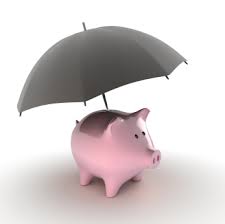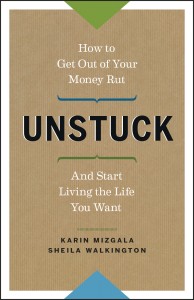Spend 1% of your life making sure you have a solid Plan B and 99% focused on living Plan A to the fullest.
– Anonymous
No one likes thinking about the potential for illness, injury, unemployment, or death but a good financial plan factors in planning for the unexpected. Neither planning nor insurance will prevent potentially difficult times, but being prepared can lessen the financial and emotional impact for you and your family.
It’s easy to put off, thinking you have lots of time but your life can change in an instant and then it can be too late. If there’s an emergency or a crisis, life is already going to be distressing and emotionally challenging. The last thing you need is to be stressed about your finances.
Emergency Fund
Start by being sure you have incorporated expenses relating to irregular, but ordinary events in your Spending and Savings Plan. Unexpected bills when your car breaks down, the roof leaks or the computer crashes are part of everyday life, not real emergencies. You might as well acknowledge that and build those expenses into the plan right from the start.
Emergencies are the things that happen that are truly beyond regular day to day life. A period of unemployment, an illness, the need to help out family members – these types of events are pretty hard to anticipate and plan for, but they could seriously undermine your finances and your peace of mind.
A good rule of thumb for an emergency fund is to have an amount equal to three to six months of living expenses set aside, but it’s important to delve into this further as this could potentially be a large and overwhelming number! Easy to see why you might ignore this advice as completely unrealistic when you’re barely making ends meet as it is.
A better way to approach the question of an emergency fund is to ask yourself: “If something happened to me or to my partner, would there be enough money to continue living as we are today?”
Some questions to consider when assessing how much your emergency fund should be:
- What are my expenses right now?
- Is my job secure?
- Do I have a partner or family members who could support me if I wasn’t working?
- Do I have disability insurance?
- What expenses are fixed, what can be reduced?
Figure out what you think your cash shortfall would be if an emergency arose. Now set a goal for how much you want to have available for your emergency fund. If you don’t have the money to set aside right away, build an automatic monthly savings program into your Spending and Savings Plan and start working towards your emergency fund goal. A high interest savings account is the best place to park these funds.
Insurance
Another way to mitigate the financial impact of a crisis is to have the right amount and the right kind of insurance.
There are various types of insurance that can help provide some financial assistance in the case of death, illness, or disability. The first thing to consider is – do you actually need insurance? Some people may have sufficient assets, resources and income from other sources without having to rely on insurance; but for most people and families, some form of insurance is usually required.
While it’s unsettling to think about the curve balls that life throws at us, having an emergency fund and the right insurance coverage will help you sleep at night knowing that you and your family will be well taken care of financially, in any case of Plan B.
UNSTUCK – How to Get out of Your Money Rut and Start Living the Life you Want
by Karin Mizgala and Sheila Walkington
Excerpt from Chapter 12







